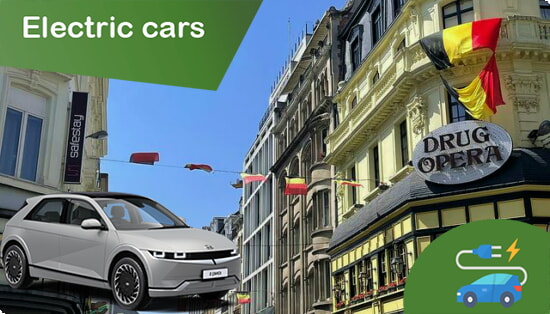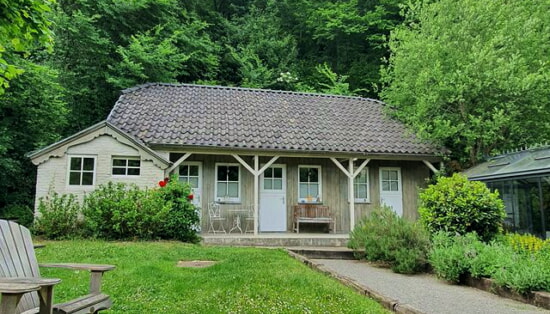 20%
Discount
20%
Discount

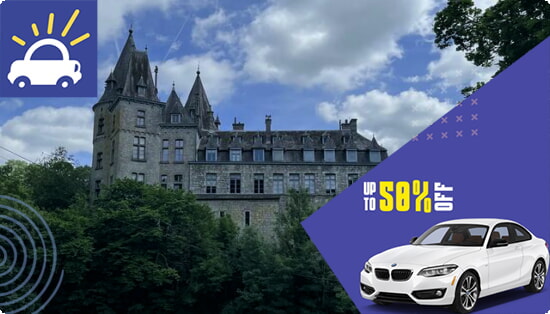
Belgium's driving regulations are regionally specific, and some rules may be unexpected for international visitors. When driving a rental car, it's important to monitor your speed and adhere to posted speed limits. Always give way to vehicles coming from the right, and ensure you have a reflective jacket and warning triangle in the car.
Safety is a priority in Belgium, and traffic fines are steep. To avoid penalties, obey all traffic laws. Many roads have video surveillance and radar to enforce rules. Children under 12 must be in an appropriate child seat based on their weight and height, and they are only allowed to sit in the back of the car.
Only use your dipped headlights when necessary. To avoid fines, use a hands-free system for your phone. The legal alcohol limit for drivers is 0.5 parts per million (ppm). Traffic violations in Belgian cities carry various fines:
Speeding over 20 km/h in urban areas or 30 km/h outside can lead to license suspension. For more details on fines, visit the Ministry of Transport in Belgium's official website.
The Liefkenshoektunnel near Antwerp is a notable toll road, charging only vehicles over 3.5 tons. Passenger car travel is typically free. In major cities, street parking is scarce and usually paid. A lucky find may cost you 7 euros for three hours, payable via parking meters or SMS. For safety and convenience, consider using covered parking lots, where the first hour costs 2.5 euros and a full day exceeds six hours at 15 euros.
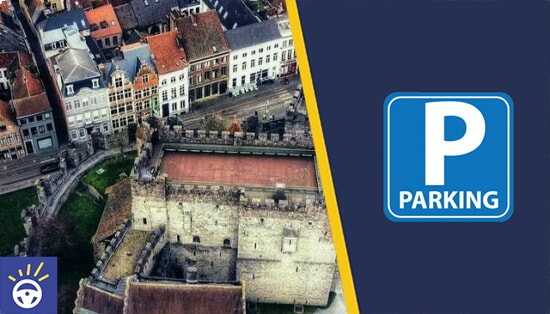
Belgium is a stunning country that deserves to be on your travel bucket list. When you visit, make sure to explore Brussels, the enchanting capital. Renting a car can enhance your experience, allowing you to discover fascinating sights at your own pace, without the constraints of group tours. In Brussels, immerse yourself in the vibrant culture by visiting bars, shopping, wandering through markets, savoring local delicacies, and exploring the bustling streets, museums, and attractions.
For a family-friendly adventure in Brussels, head to the Mini-Europe miniature park, a favorite among travelers. Don't miss the most iconic fountain in Belgium, The Manneken Pis, which has been a celebrated sculpture since the 15th century and took its current form in 1619.
Next, visit the charming city of Bruges, known for its UNESCO World Heritage-listed Market Square and the towering medieval Belfort watchtower. Climb the 107-meter tower for a breathtaking city panorama, stroll through the alleys and canals, and take a boat ride to admire landmarks like the Church of Our Lady or the Beginhof Monastery. Bruges, often referred to as the Northern Venice, is an epitome of romance.
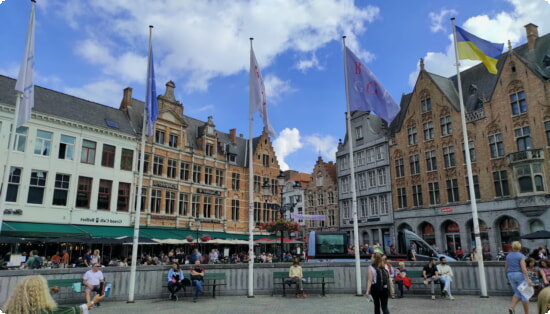
The picturesque Rose Quay is another spot in Bruges where tourists capture the most scenic "postcard" photos. A walk along the canals offers views of stone houses with traditional Flemish facades, medieval docks, and bridges.
Don't overlook Antwerp, Belgium's second-largest city and home to Europe's second-largest port. Antwerp is globally recognized for its diamond industry, with numerous dealers located near the Antwerpen-Centraal station. In the city center, you'll find Steen Castle, a fortress that once controlled access to the Scheldt River. Although much of the original structure was demolished in the 19th century, the castle's appearance today is still striking.
Antwerp also boasts the oldest Belgian zoo, which is home to over 5,000 animals from around the world and is dedicated to the conservation of endangered species, including the okapi, Przewalski's horse, bonobo, golden-headed tamarin, Congolese peacock, and more.
Just 150 km from Antwerp, you can visit the renowned natural wonder, the An-sur-Les cave in the village of the same name, also known as Khan Cave. The Dome Hall, the largest chamber, is an impressive 150 meters wide and 127 meters high.
In the city of Dinant, perched on the high banks of the Meuse River, stands a 19th century citadel built on the site of 11th century fortifications. The citadel offers captivating views and landscapes.
Near the French border, in the Semois river valley, lies The Bouillon castle in the town of Bouillon. The fortress, consisting of three interconnected parts, is a labyrinth of corridors and grand vaulted halls, making it one of the oldest and most fascinating medieval buildings in Belgium. From its viewpoints, you can gaze upon the town and the winding Semois River.
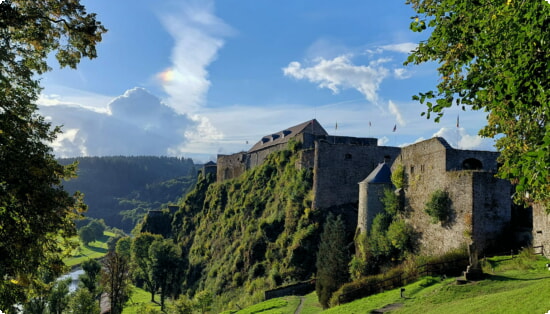
Renting a car in Belgium without a deposit is now more accessible, with numerous car rental companies offering services that can be booked online or by phone. Online booking is particularly convenient, allowing you to specify the time, pickup location, and purpose of the rental.
Typically, the deposit for an economy class car at major Belgian rental companies ranges from 500 to 600 euros—an amount that requires preparation if you don't own a credit card. Using a debit card may result in being turned away at the counter. To circumvent this issue, obtaining a credit card is advisable. After returning the car, the deposit should be released within 3-7 days, although delays can occur depending on your bank. By regulation, deposits cannot be held for more than 30 days.
Standard insurance, including theft protection, is usually part of the rental price. Full insurance, however, incurs an additional fee. If you're a novice driver, you can opt for full insurance at the counter during registration. With full insurance, the deposit is either not blocked on your card or a nominal amount—up to 100 euros—is reserved for fuel. The daily rate for full insurance varies from 13 to 25 euros or more, depending on the car type, season, and other factors.
Car rental companies in Belgium fall into two categories:
International networks like Avis, Hertz, Europcar, and Sixt have a presence in many countries, including Belgium, and are commonly found at airports. These companies often allow you to book a car without a deposit if you purchase full insurance.
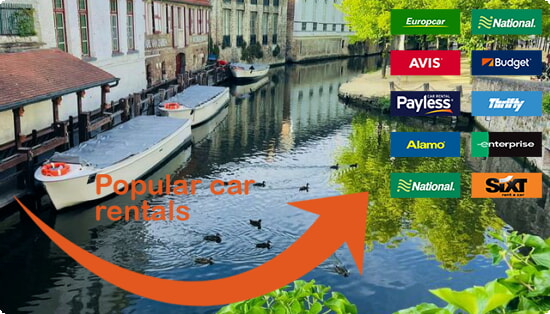
Belgium is a standout country for its comfort and support towards electric vehicle drivers, boasting the second-highest number of private electric vehicles. Here are the top benefits of renting an electric car in Belgium.
Electric vehicles enjoy unrestricted access to major cities in Belgium, unlike their gasoline counterparts, making them a convenient and cost-effective choice for urban driving.
Renting a Tesla or other electric vehicles grants you access to exclusive business facilities and priority parking in the capital and other large cities.
Electric cars offer a comfortable, high-speed, and stable driving experience on Belgian motorways, with the added benefit of low maintenance and minimal technical monitoring.
The Belgian government encourages the use of eco-friendly transport by providing numerous free charging and parking spots for electric vehicles across the country.
Rental companies, such as Avis, offer a diverse fleet of electric vehicles, including:
Rental prices for electric cars vary between 30-80 euros per day, depending on the model and time of year. When renting in Belgium, consider the key features of the local roads, focusing on speed, range, and safety.
